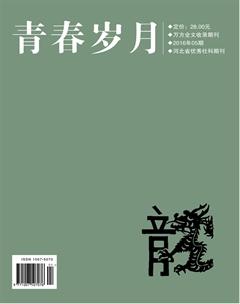The Development of Confucius Institute in the Context of Globalization
Abstract:This paper has an systematic analysis of cultural conflict and cultural challenges in the context of globalization and cross-cultural communication, meanwhile, proposes some suggestion to the Confucius Institute in the context of globalization and cross-cultural communication.
Key words:Confucius Institute;Globalization;Cross-cultural communication; Cultural conflict
1. THE DEVELOPMENT COURSE OF CONFUCIUS INSTITUTE
Confucius Institute is a non-profit public educational organization affiliated with the Ministry of Education of the People's Republic of China, whose aim is to promote Chinese language and culture, support local Chinese teaching internationally, and facilitate cultural exchanges(Wikipedia). Confucius Institutes promote and teach Chinese culture and language around the world.
With the development of Confucius Institute in the context of globalization, from the increase number over the years, the development of Confucius Institute experienced a period of rapid growth, with an average increase of near 100 a year. Until October in 2014, this is the distribution of Confucius Institute in different continents: 102 in 32 Asian countries(regions), 42 in 29 African countries, 158 in 38 European countries, 152 in 17 American countries and 17 in 3 Oceanian countries(Li Xiang).
2. CHINESE CULTURE IN CONFUCIUS INSTITUTE
Chinese language and Chinese characters are significant cultural phenomenon as well as integral part in Chinese culture. Confucius Institute is a foreign educational and cultural institution in the world whose main objective is promotion Chinese language and Chinese characters. Chinese art is another Chinese culture information that Confucius Institute transmits. Chinese language and Chinese characters spawns lots of cultural features which become momentous elements of Chinese arts.
Chinese customs embodies Chinese peoples ideas, ways of thinking, spiritual outlook, mental state, value orientation and behavioral norms. A variety of customs contains different profound cultural background and cultural connotations. Confucius Institute introduces and presents Chinese customs and Chinese festivals in daily life for spreading Chinese peoples life philosophy and harmonious concept to the whole world.
Taiji and martial art have positive effect for physical health as well as self-cultivation. Taiji and martial art have abundant cultural information and cultural elements. And Chinese kungfu becomes more and more welcomed by the people in the whole world, turning into an important form of cultural dissemination and communication in Confucius Institute.
Chinese Medical is an special cultural part in Chinese culture. The most important idea of Chinese Medical is that medical is Ren(仁), which deeply present Chinese Medical care for and respect human life(Cai Yanan 129). Physiotherapy and acupuncture have gradually begun to be accepted by the people around the world.
3. CULTURAL CONFLICT IN CONFUCIUS INSTITUTE
(1)Cultural Conflict in Confucius Institute
In administrative system, Confucius Institute Headquarters is the highest governing body of the words Confucius Institutes and it responsible for managing and directing all global Confucius Institutes. China is a country of high power distance that attaches great importance to status. The headquarters often think highly of the management and control to top-down branches.
Some teachers in Confucius Institute lacks of cross-cultural communication competence. China is a typical collectivist country, therefore Chinese teachers pay much attention to the development of the whole classes while easily ignore individuals development. On the contrary, teachers in western countries encourage the development of individual character and personal skills.
What is more, Chinese culture tends to high uncertainty avoidance. Chinese people try to minimize the occurrence of unknown and unusual circumstances and they like rules and planning. While there are some countries which are low uncertainty avoidance culture. China is a country of high power distance, so the distance between teacher and student is large. However, western countries have low power distance.
(2)Strategies about Culture Conflict in the Development Process of Confucius Institute
Chinese should fully respect local countries culture and customs, then think highly of cross-cultural communication training for Chinese management level and teaches in Confucius Institute. As for management level, they ought to follow Chinas management system and principles. They should fully understand local administrative system and have a good communication with the native people. The most important thing is that they must familiar with foreign students study habits, learning state and minds. Chinese also should take efforts to launch different kinds of influential and distinctive cultural activities and carry out academic researches which are closely integrated with teaching and cultural activities.
4. CONCLUSION
Cross-cultural communication happens pervasively in the process of Confucius Institutes developing. So it is inevitable to confront challenges and cultural conflict among diverse culture. However, fully understanding Chinese culture and local foreign culture is central to addressing the challenges and cultural conflict that Confucius Institute faces.
【BIBLIOGRAPHY】
[1] Cai Xiqin. The Life and Wisdom of Confucius. Beijing: Sino-lingua press, 2003.
[2] Gudykunst, William B. Bridhing differences: Effective intergroup communication. 4th edn. London: Sage, 2004.
[3] Hofstede Geert, and Michael Minkov. Cultures and Organizations: Software of the Mind. New York: McGraw-Hill, 2010.
[4] 才亞楠. “从孔子学院谈中国文化的海外传播[J]. 语文教学通讯, 814.12 (2014):12-13.
[5] 李 香. “借鉴歌德学院浅析孔子学院发展中存在的问题[J]. 商业文化, 4. 51 (2010): 33-40.
【作者简介】
刘露(1992—),女,汉族,陕西省咸阳市人,西安外国语大学英文学院2014级英语语言文学专业硕士研究生。主要研究方向:跨文化交际。

